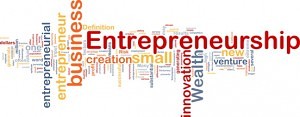 Check out this article in the Wall Street Journal, “Better Ideas Through Failure.” It’s about a unit of WPP Grey Group’s creation of the Heroic Failure award for employees who take an edgier, riskier approach to innovation and winning.
Check out this article in the Wall Street Journal, “Better Ideas Through Failure.” It’s about a unit of WPP Grey Group’s creation of the Heroic Failure award for employees who take an edgier, riskier approach to innovation and winning.
Then there’s the recent point of view piece I read in Ad Age from a vice president of marketing at Hoover’s. He was all set to hire a candidate when something struck him; the candidate was good, and he was competent, but that’s all. Competence is no longer good enough; candidates have to show more — get out of the corporate box and prove themselves as risk takers and, gasp, be entrepreneurial!
Putting two and two together, take a look at this picture:
** The status quo in the workplace is being shot down.
** The global platform is the new sandbox, and if you don’t come equipped with unusually innovative experiences then you can’t play.
** Thinking is what’s now required; in fact, it’s demanded in the workplace.
** Entrepreneurs rule. Have you seen all the hoopla about how those who innovate and manage their own companies are supposed to save the U.S. from a double-dip?
The initial concept about failure is nothing new to parents. We watch as our babies fall only to get up and walk. I’ve written about my failures as a blogger with the back end and analytics of this site (which can also be construed as lack of knowledge or failure to learn in a timely fashion, perhaps). Others can share failures as learning experiences all the time.
In business, though, failing is an expensive endeavor, but if that’s the new path to innovation, then by all means…make some stupid mistakes! Am certain the expectation is intense to learn from the errors, establish new and creative methods of winning and get teams to reach key performance indicators without failure, without negative effect on the bottom line, and efficiently.
Here’s what else the Wall Street Journal piece says of innovators:
** Take time off so original ideas can incubate.
** Be free to take risks, work on multiple projects at once to spark flexible thinking.
** In society and culture, civil conflict, political fragmentation and cultural diversity can trigger divergent thinking.
** What also helps individual creativity (and I don’t agree with this one IMHO) is “aggressive, egocentric or antisocial behavior makes it easier to ponder ideas in solitude or challenge convention.”
Fascinating stuff, eh? I’m sure you readers of the Harvard Business Review can muster some further food for thought on this topic? Or, perhaps an actual workplace experience might trigger a story or two?








